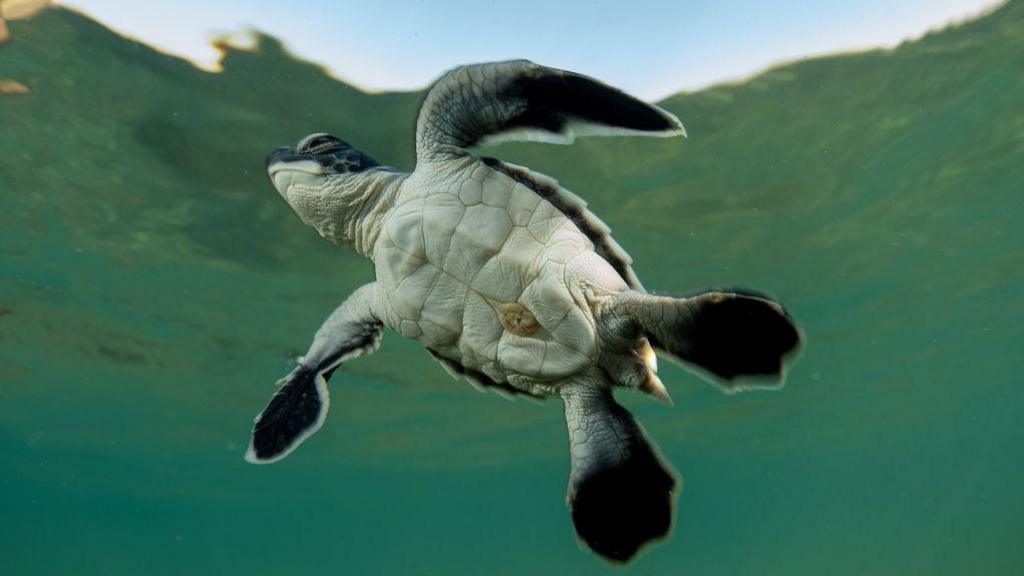Bottlenose dolphins 'smile' at their friends
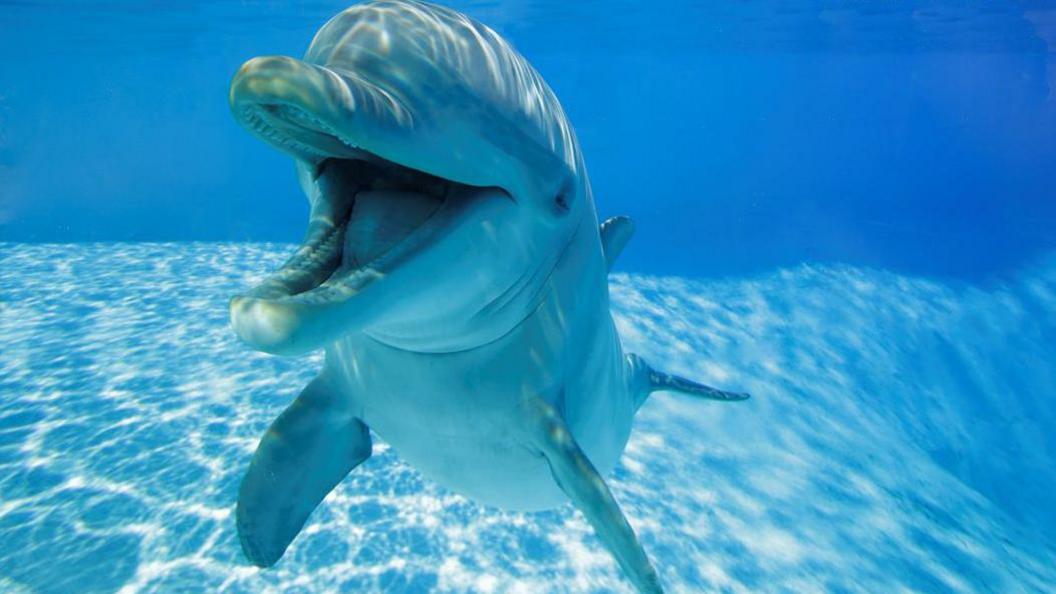
They'll be wave-ing next!
- Published
We all like to have fun with our friends, but dolphins have been making a splash recently, as scientists have found they 'smile' during playtime.
They're often seen performing underwater acrobatics, playing with objects and chasing each other.
Now researchers have found bottlenose dolphins have an "open mouth" expression that they use to communicate with each other during play - like a human smile.
When they beamed at their friends, they got a similar 'smile' back 33% of the time. How fin-tastic!
More delightful dolphin stories!
Rare black and white dolphin spotted
- Published7 February 2024
Dolphins can tell who their friends are by their WEE!
- Published25 May 2022
Goo-goo ga-ga! Dolphins use baby voices too
- Published28 June 2023
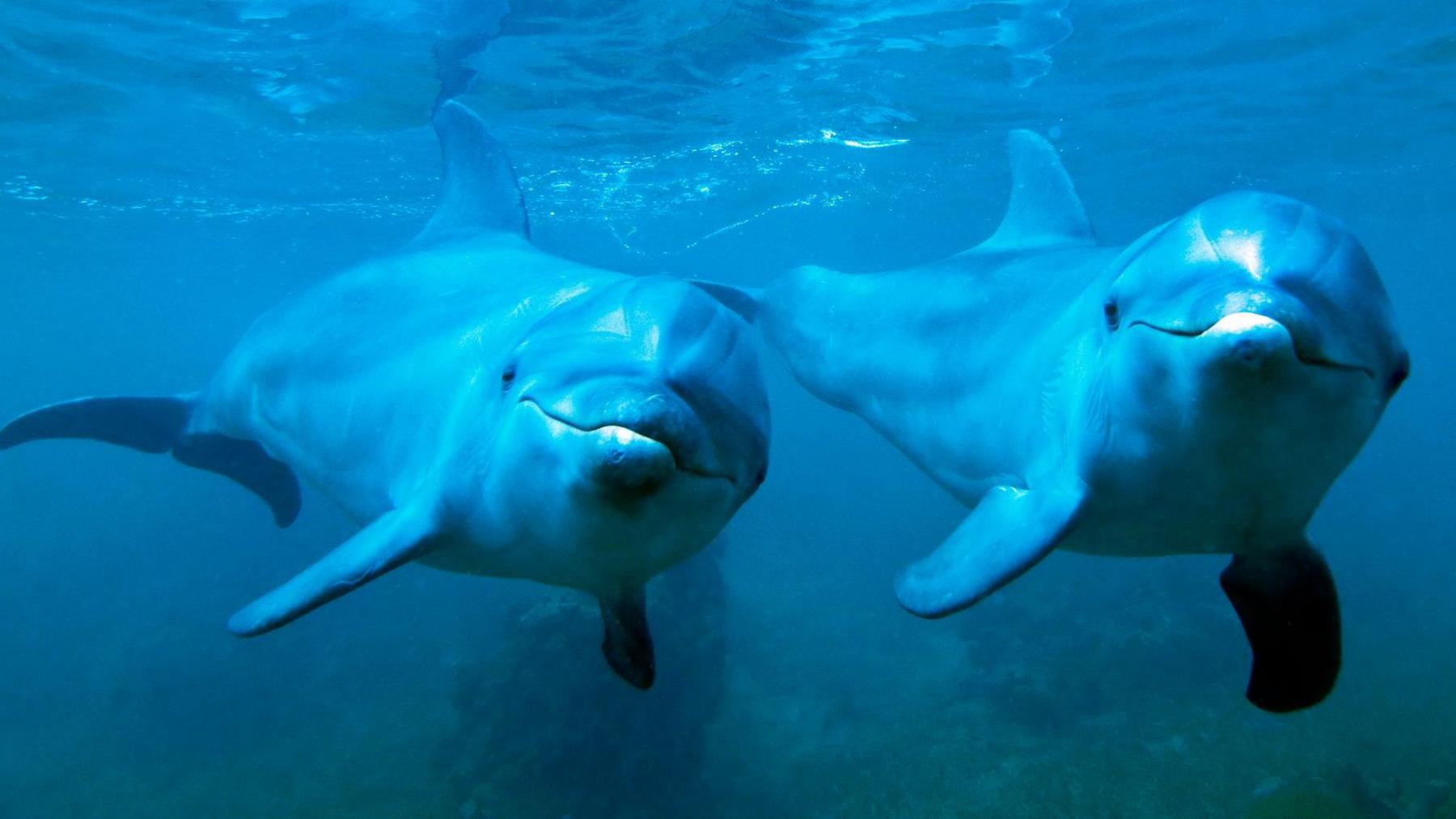
Communication is key for dolphins while they play
How did scientists discover dolphin 'smiles'
Apart from humans, other species like chimpanzees are known to use facial expressions to show playfulness. Biologists wanted to find out whether marine animals do the same.
The research, published in the journal iScience, recorded 22 bottlenose dolphins while they were playing in pairs and also playing with their human trainers.
Dolphins are very social animals and can often be seen in groups of up to 15.
The researchers found that the aquatic mammals used the open mouth expression when playing with each other, but not when playing with humans or on their own.
They were also more likely to use the expression when their faces could be seen by their playmates.
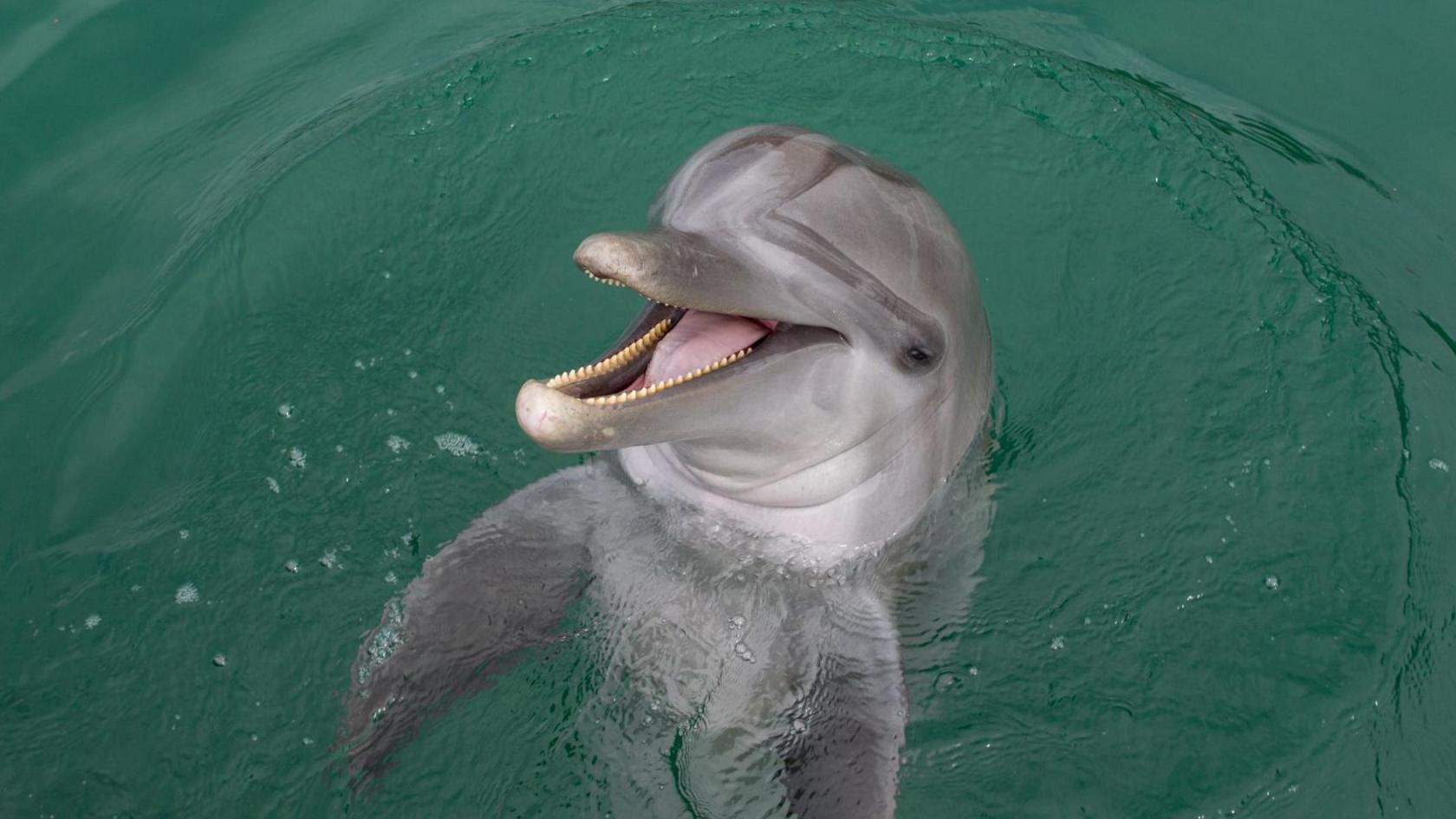
Dolphins often 'smile' back at each other
Why do dolphins 'smile'?
Evolutionary biologist Dr Elisabetta Palagi from University of Pisa said: “The relaxed open mouth, seen in social carnivores, monkeys’ play faces, and even human laughter, is a universal sign of playfulness, helping animals – and us – signal fun and avoid conflict.”
She added: "This rate of mimicry in dolphins is consistent with what's been observed in certain carnivores, such as meerkats and sun bears."
More amazing animal stories
- Published2 October 2024
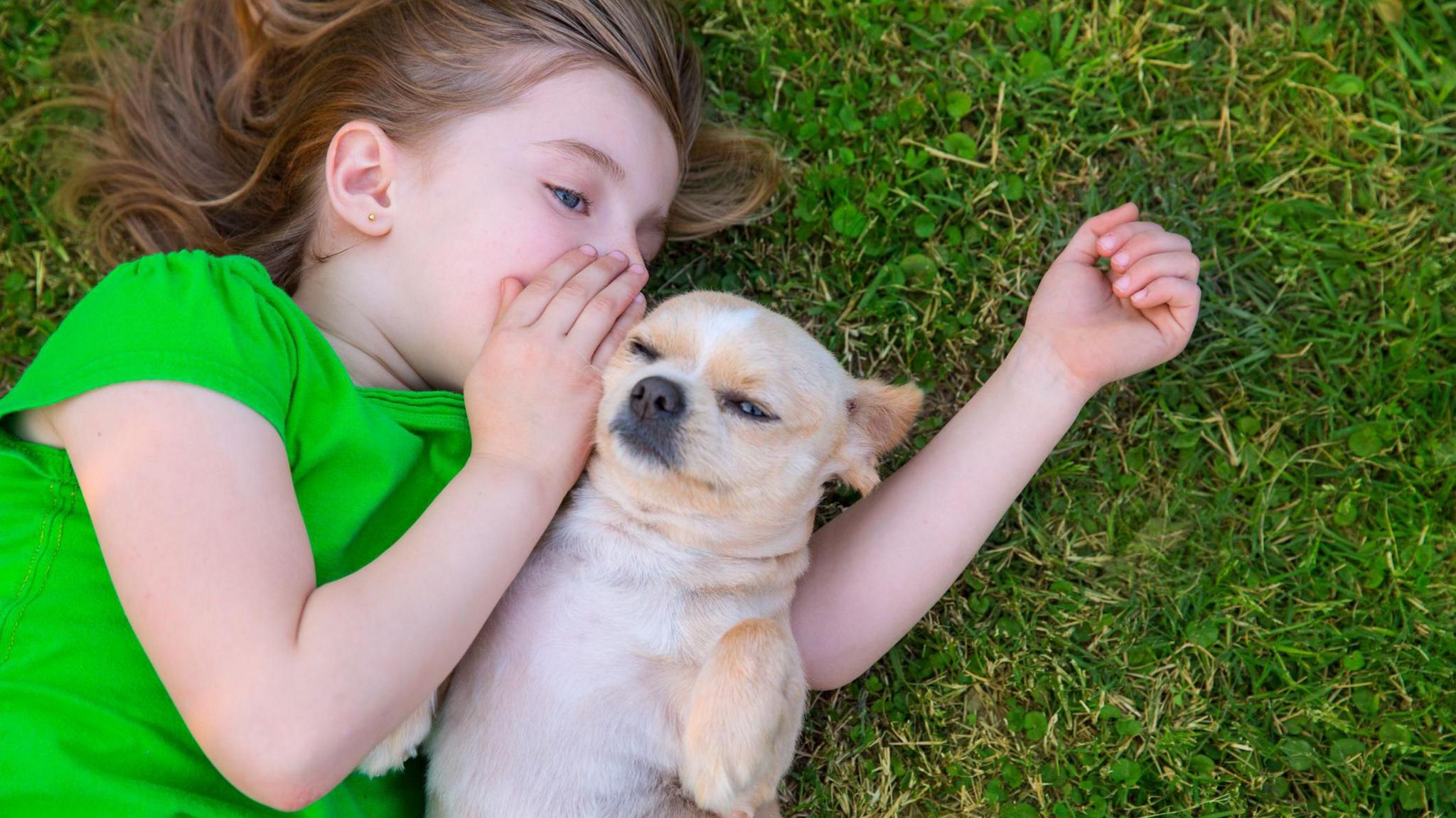
- Published2 October 2024
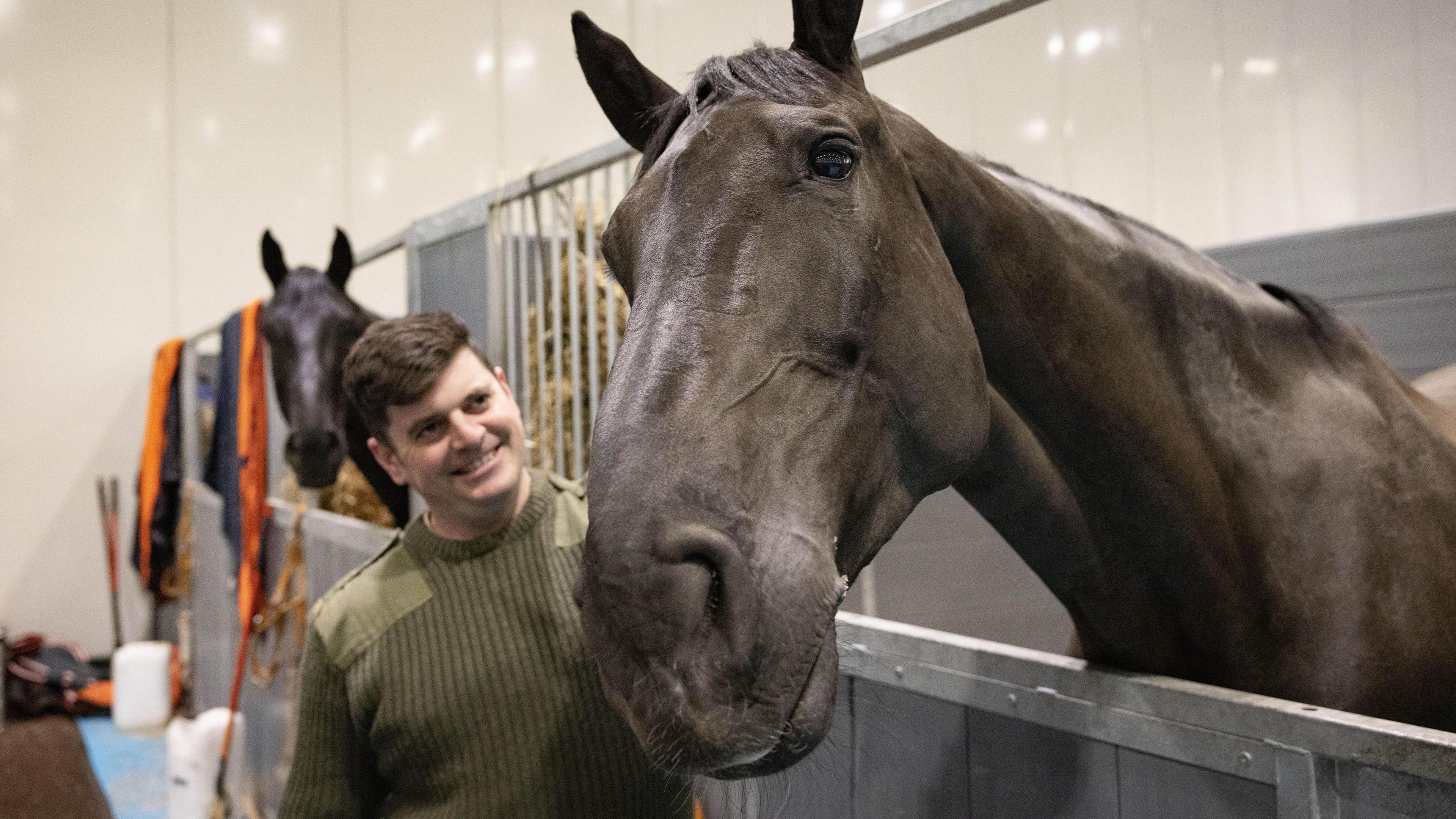
- Published28 September 2024
